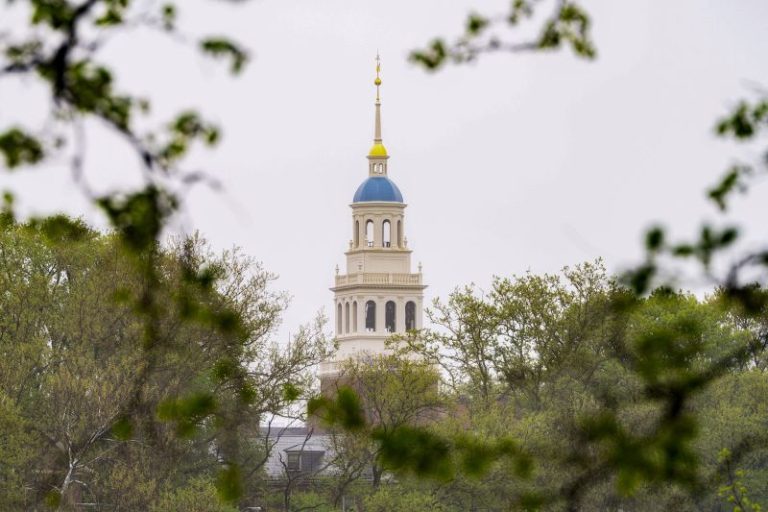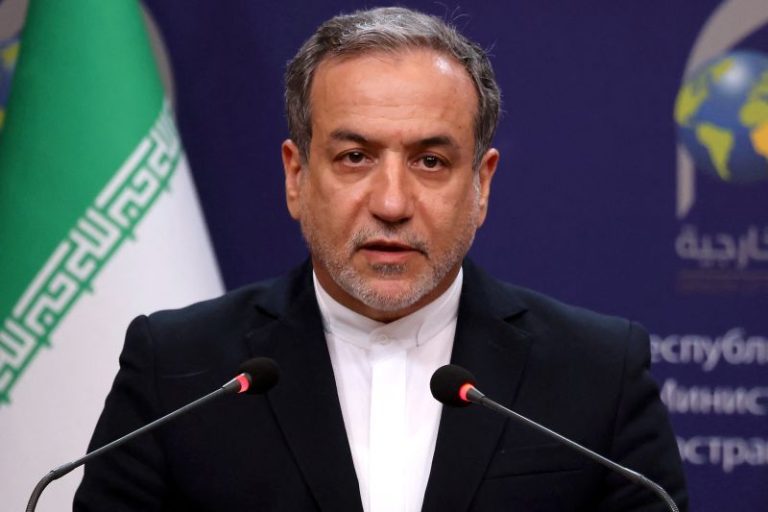The Trump administration’s move to bar Harvard University from enrolling international students has ricocheted across China, with officials and commentators seeing it through one lens: the growing rivalry between Washington and Beijing.
“China has consistently opposed the politicization of educational collaboration,” a spokesperson for China’s Foreign Ministry said Friday, adding that the US move “will only tarnish its own image and reputation in the world.”
Some commentators across Chinese social media platforms took a similar tack: “It’s fun to watch them destroy their own strength,” read one comment on the X-like platform Weibo that garnered hundreds of likes.
“Trump comes to the rescue again,” wrote another, commenting on a hashtag about the news, which has tens of millions of views. “Recruiting international students is … the main way to attract top talent! After this road is cut off, will Harvard still be the same Harvard?”
The announcement by the Department of Homeland Security (DHS) is a clear escalation of a dispute between the oldest and the richest Ivy League institution and the White House and part of a broader drive to tighten control over international students in the US amid an immigration crackdown. The administration of US President Donald Trump has revoked hundreds of student visas in nearly every corner of the country as part of a vast immigration crackdown.
Harvard and Trump’s administration have been locked in conflict for months as the administration demanded the university make changes to campus operations. The government has homed in on foreign students and staff it believes participated in contentious campus protests over the Israel-Hamas war.
But the revocation isn’t just about a feud between a university and the US president. It’s also the latest in a widening rupture between two superpowers.
For years, China sent more international students to America than any other country. Those deep educational ties are being reshaped by a growing geopolitical rivalry that has fueled an ongoing trade and tech war.
“This administration is holding Harvard accountable for fostering violence, antisemitism, and coordinating with the Chinese Communist Party on its campus,” DHS Secretary Kristi Noem said in a statement Thursday.
The DHS statement included claims of ties between Harvard and Chinese institutions or individuals linked to military-related research, as well as with an entity blacklisted by the Trump administration for alleged human rights violations. It links to information about a letter that bipartisan US lawmakers sent earlier this week to Harvard requesting information about the university’s alleged “partnerships with foreign adversaries.”
‘Absolute shock’
The ability of elite American universities to recruit top students from around the world, many of whom often go on to stay in the United States, has long been seen as a critical factor in America’s science and tech prowess, as well as a key source of income for its universities.
The decision by the DHS both bars Harvard from enrolling international students for the coming academic year and requires current foreign students to transfer to another university to maintain their status.
International students make up more than a quarter of Harvard’s student body, with those hailing from China making up the largest international group, according to a tally on Harvard’s International Office website.
Among those students is Fangzhou Jiang, 30, a student at Harvard’s Kennedy School, who said he couldn’t believe it when he heard that his university status was in jeopardy and immediately began to worry if his visa was still valid.
“I was absolutely shocked for quite a few minutes. I just never anticipated that the administration could go this far,” said Jiang, who is also the founder of an education consulting company helping foreign students gain admission to elite American universities. “Ever since I was young, when it comes to the best universities in the world, from a young age, I learned that it’s Harvard,” he said.
Ivy League schools like Harvard, Princeton and Yale are household names in middle class China, where American universities have for years been viewed as a path to a prestigious education and a leg-up in China’s fiercely competitive career-ladder.
China was the top source of international students in the US for 15 straight years since 2009, before it was surpassed by India just last year, according to figures from Open Doors, a US Department of State-backed database tracking international student enrollment.
Along the way, US-China educational ties have cultivated close relationships between Chinese and American academics and institutions, while US universities and industry are widely seen to have benefited from their ability to attract top talent from China, and elsewhere, to their halls.
Harvard has educated Chinese figures like former Vice Premier Liu He, who played a key role negotiating Trump’s phase one trade deal during the American president’s first term.
But those ties have come under increasing scrutiny in recent years as the US began to see an increasingly assertive and powerful China as a technological rival and a threat to its own superpower status.
More than 277,000 Chinese students studied in the US during the 2023 to 2024 academic year, down from over 372,000 in the peak 2019-2020 year – a decline that coincides with the Covid-19 pandemic but also increasing friction between the two governments.
Meanwhile, rising nationalist sentiment and government emphasis on national security in China have led to a shift in perception about the value of American versus Chinese universities.
Reverse brain-drain
The Department of Homeland Security’s claims regarding Harvard’s institutional ties to entities and individuals with ties to military-related research are the latest move reflecting deep-seated concern in Washington about Chinese access to sensitive and military-applicable American technology via academia.
To crack down on the perceived threat of Chinese students conducting espionage on US soil, Trump introduced a ban during his first term that effectively prevented graduates in the science, technology, engineering and mathematics (STEM) fields from Chinese universities believed to be linked to the military from gaining visas to the US.
His first administration also launched the now defunct China Initiative, a national security program intended to thwart China’s intelligence activities in the US, including those aimed at stealing emerging technology from research universities.
The program, which drew comparisons to the McCarthy-era anti-Communism “red scare” of the 1950s, was cancelled by the Biden administration after facing widespread blowback for what was seen as over-reach and complaints that it fueled suspicion and bias against innocent Chinese Americans.
Trump’s broader tightening of US immigration policy during his second term has now unleashed a new wave of insecurity and uncertainty for many students and schools.
While those concerns are shared by international students from many countries, the heightened tensions between the two countries have elevated pressure on Chinese students and scholars – and the impact has already been seen.
And for some students at the start of their academic and professional careers, the latest development leaves them unsure about what to do next.
Among them is Sophie Wu, a 22-year-old from China’s southern tech hub of Shenzhen, who was accepted at a graduate program at Harvard this fall, after finishing her undergraduate degree in the US. Wu said she felt “numb” after hearing the news.


